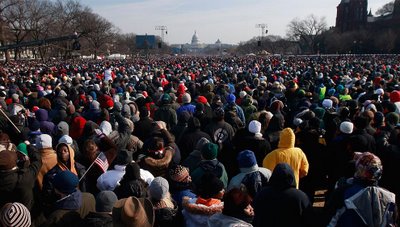Let us pray!
Some years ago I was asked to say a prayer at the Memorial Day event in Bronxville, New York. So I did. I don’t remember whether it was from the Prayer Book or not but it was a Christian prayer and ended “through Jesus Christ our Lord.” A few days later, I got a polite prayer from a man who said he had felt excluded since Jesus is not his Lord. Bronxville being what it is, it hadn’t occurred to me that there would be non-Christians there. And I doubt I would have used a different prayer if I had known. My philosophy was that as a Christian, I said Christian prayers, and if people wanted other kinds of prayers they would invite other kinds of clergy.
I responded somehow to the man’s letter and got a letter from his rabbi inviting some conversation. We met and talked at least twice and didn’t make any substantial progress. It’s part of the uniqueness of Christianity that while we can say Amen to Jewish and Muslim prayers, they can’t say Amen to ours. So their clergy can say their usual prayers on an ecumenical occasion but Christians can’t. It does seem a little unfair.
On the other hand, the next time I was invited to say a prayer on an ecumenical occasion – and this time I knew it was – I didn’t include Jesus’ Name.
Public prayer outside the church is a tricky thing. Am I praying for myself while others listen, or am I attempting to lead others in a prayer that unites us?
This year’s Inauguration featured three prayers, one by the evangelical Rick Warren, one by the Episcopal Bishop of New Hampshire, Gene Robinson, and one by the Methodist pastor who lead the Selma to Montgomery march on 1965, Joseph Lowery. Warren used Jesus’ name but fudged the issue by repeating it in Hebrew and Arabic versions. Neither Lowery nor Warren did.
I wasn’t much impressed with Warren’s prayer. I don’t like prayers that tell God things God already knows – or perhaps doesn’t know: “And we know today that Dr. King and a great cloud of witnesses are shouting in Heaven.” I don’t really know how King spends his time in a realm beyond time and I’m not sure Warren has better sources than I.
I was moved by Lowery’s prayer with its opening recitation of the great hymn by James Weldon Johnson. And I thought Robinson’s prayer (which I didn’t hear, but read later) said some things very well.
But prayers are for praying and public prayer needs to be open to as many as possible or it fails of its purpose. Do we want people praying with us at some level or tuning out? “Least common denominator” maybe, but it isn’t a time for nuclear physics
Predictably, an Episcopal church magazine came today with an editorial denouncing Robinson on the grounds that he was “given an opportunity to make a witness for Christ and he squandered it.” Well, actually, he did make a witness – to a church that is open to a variety of people with various identities and agendas but a common faith and a common liturgy. We may not all agree about everything but we can join in prayer and offer a vision of unity – or we could.
Who was it said, “Can’t we all just get along?” Can’t we just pray instead of critiquing the prayer? Can’t we find a level at which we can come together as Americans and find common ground and work together to heal a badly splintered country? Sunday morning we can be Episcopalians and use our own prayers, but how will we help to unite this country if we are going to be at each other’s throats when someone doesn’t do it our particular way?

 Christopher L. Webber
Christopher L. Webber
I thought Bp Robinson made a terrific witness in his Inaugural prayer and it was a travesty that HBO and other networks chose to ‘censor’ it by ‘neglecting’? to broadcast it as they had committed themselves to do. What a shame we weren’t all allowed to listen to him as well as everyone else that week. Where was the freedom of speech there?
In Jesus, name, Chris- Amen.
Chris has made some interesting distinctions here, which I think have to lead us back to why our country’s founding fathers did not want a “State Religion”. As we become more diverse, it becomes more difficult to know how to pray in public situations. But as Christians, we believe there is One Way and One Witness leading to salvation and eternal Life. We ignore that Truth at very great peril to ourselves, and to all those we are called to Love.